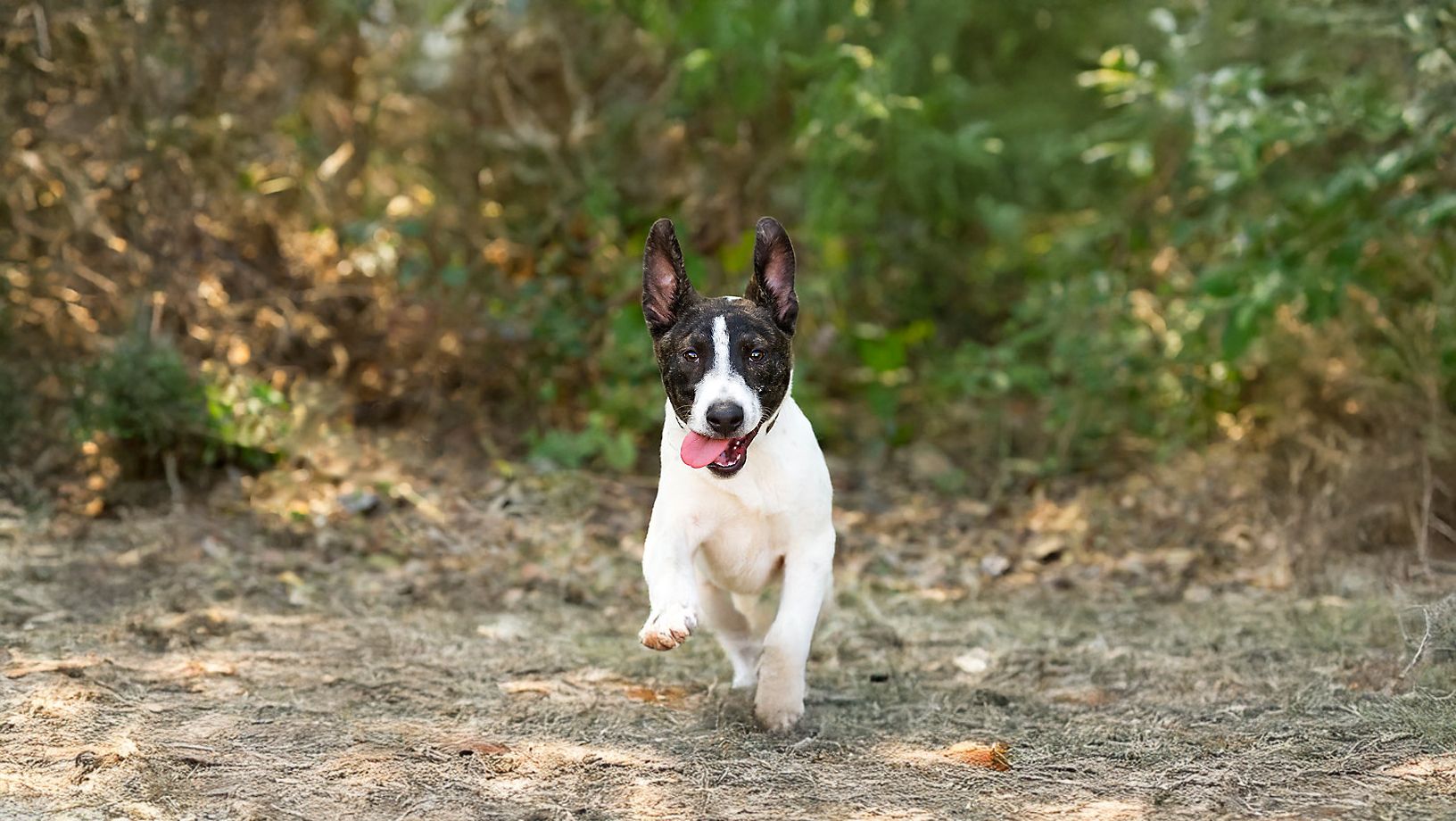What is the Difference Between Natural and Organic Dog Food

In this Article
Figuring out the best diet for your pup can be a difficult decision, especially because there are so many options and varieties of dog food out there. There is also a wealth of information on the internet about what is best or most healthy for your dog and not all of it might match up. It’s important that pet parents always talk to their vet when it comes to decisions like what food to feed your dog. Your vet is the most trusted source of information about what food will be best for your pup and will help them live their best life.
When researching dog food, you have probably come across diets such as organic dog food, natural dog food, and grain-free dog food. These foods all have different ingredients and important distinctions that put them into these categories. So what is the difference between these diets and how can you choose the best food for your pup? Keep reading to learn more.
What is Organic Dog Food?
“Organic” is an extremely common term that most pet parents have probably heard at one point or another. This term commonly describes foods you’ve seen in the vegetable, fruit, or meat aisle. The standards for organic human food are different from that of dog food. In order for human food to be considered organic, it has to meet a huge list of meticulous regulations. Dog food, on the other hand, is regulated by the Association of American Feed Control Officials (AAFCO).
According to AAFCO, the term organic is defined as “organic animal feed [that] meets production and handling requirements of the U.S. Department of Agriculture’s (USDA) National Organic Program (NOP).”
They then go on to say “organic regulations specific for pet foods are currently being developed. In the interim, the NOP has said that pet foods claiming to be organic must meet its human food regulations.”
What is Natural Dog Food?
It’s more about what isn’t in the food than what is. In order to be labeled “natural,” pet food must be made without added artificial colors, flavors or preservatives. With the exception of certain vitamins, mineral, and trace nutrients, the ingredients in natural food can come only from plants, animals, or naturally occurring minerals. Many natural dog food brands are also free of byproducts.
What is Grain-Free Dog Food?
Grain-free dog food is just what it sounds like -- free from grains. Some of the most common grains include
- Wheat
- Corn
- Rice
- Oats
- Barley
- Rye
- Soy
- And More
These ingredients can be tied to some of the most common food allergies and sensitivities in dogs.
Questions to Ask When Choosing a Dog Food:
So which diet is right for your pet and how do you choose? First things first, schedule an appointment with your vet. They will be able to evaluate your pup and help you pair them with an optimal diet. Not every dog benefits from grain-free dog food, organic dog food, or natural dog food and it is important to consult with your vet to figure out what the right fit is for them.
Some questions you can ask yourself and discuss with your veterinarian about how to choose the right dog food include:
1. Does Your Dog Have Food Sensitivities or Allergies?
Food sensitivities and allergies are more common than you think and if your dog has one, then they might benefit from a limited-ingredient or grain-free dog food. Signs of food sensitivities and allergies include itchy/dry skin, frequent diarrhea, vomiting, patchy fur, and more. Your vet can help identify signs of allergies/sensitivities and help you determine the diet that will help your dog start to feel better.
2. Does Your Pup Have Preferences?
Some dogs have preferences for what food tastes good to them and keeps them looking forward to their meals. While most dogs aren't picky, some preferences could include liking wet food more than dry food or chicken more than beef. These are things to consider when deciding what to feed your dog.
3. What Size is Your Dog?
Bigger dogs need more food and smaller dogs need less. The size of your dog is an important factor in choosing your food. If they burn more energy, then they need more calories in their diet.
4. Do They Have Health Considerations?
There are dog diets that can support a variety of health considerations. If your pup has something going on with their health, then their vet can help figure out what diet might support them in their efforts to feel their very best.
With so many different types of dog food on the market, it can be difficult to know the difference between them and where to start. Remember to always talk to your veterinarian about what will benefit your pup the most.
Information in this article is not intended to diagnose, treat or cure your pet and is not a substitute for veterinary care provided by a licensed veterinarian. For any medical or health-related advice concerning the care and treatment of your pet, contact your veterinarian.

